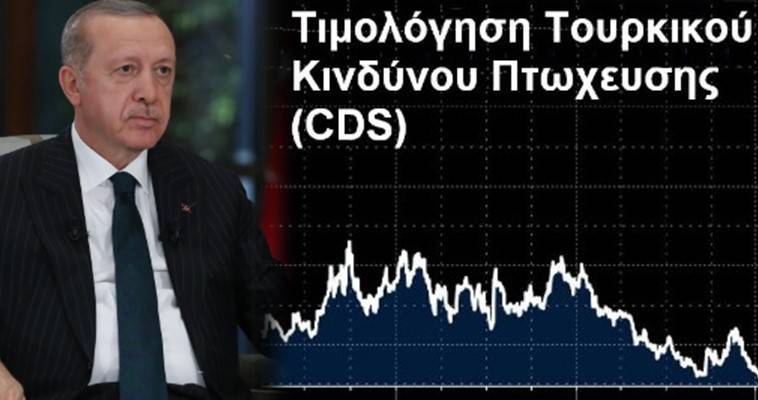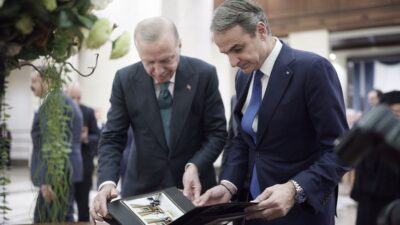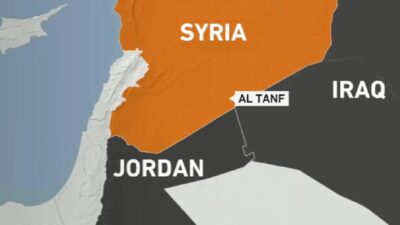Giorgos Iliopoulos: Turkey’s verboseness resounds in empty coffers
08/07/2020
Many months before the surge of the pandemic, Turkey and its financial advisers in emerging markets were worried that international financial markets were reluctant to cover the country’s current trade deficits. In fact, in August 2018, the risk premiums for the Turkish economy were rising sharply to levels that had not been recorded since 2009.
The dramatic development lead to a reversal of the trend, where the cost of a one-year insurance premium now dramatically exceeds the cost of five-year insurance, a rare symptom of extreme insecurity for the country’s economic course. In May 2019, risk premiums skyrocketed, revealing that international money markets are now beginning to account for the cost of a Turkish bankruptcy. The country’s debt in terms of risk rating ranks third after Venezuela and Argentina, followed by Ukraine in fourth place.
Twelve months later, the country is facing a steady devaluation of its national currency and an incredible amount of bleeding in the vital sector of its foreign exchange reserves, while making desperate efforts to avoid bankruptcy. In this environment, the unorthodox actions of Finance Minister Berat Albayrak, the husband of the Turkish president’s daughter, who are largely in line with his father-in-law’s views, have exacerbated the situation.
On March 19, while the pandemic wave was already causing the first phobias and incredibly fluid market conditions, he said there was no question of challenging the government’s targets for 2020, predicting a 5% growth rate. At the same time, Turkey’s central bank, whose autonomy and credibility have been irreparably damaged by Erdogan, is pouring its foreign exchange reserves into desperate attempts to support the currency.
Despite the disastrous policy, the regime insists on declaring in all tones that the dynamic structure of the Turkish economy will allow it to cope quickly, and with minor damage, to the health crisis. An attempt has been made to completely marginalize the thorny problem of the pandemic and its effects on the already injured Turkish economy.
Unexpected consequences
Developments so far suggest that Ankara has made no significant and credible preparations for the impending economic derailment, if not a collapse. Turkey’s national currency has depreciated by 14% against the US dollar since the beginning of the year, suffocating the over-indebted non-financial company sector with debts of $300 billion, with a third of these loans within a short-term horizon (of less than twelve months).
With the revenues of these companies faltering due to the pandemic, the equivalent in Turkish lira to service short-term liabilities increased by 20% in the last twelve months (June 2019-June 2020). Added to this problem is the depletion of reserves used by the central bank to support the domestic currency. At this time, reserves are just $ 1.5 billion. Since January 2019, Berat Albayrak has spent more than $ 65 billion on this effort (in the foreign exchange market).
Nevertheless, the general forecast from international financial institutions, such as the Japanese MUFG, is a further 18% devaluation of the Turkish lira in the second half of 2020. If the forecast is verified, the exchange rate against the US dollar will be 8: 1, when in September of 2016 (the beginning of decline) it stood at only 3: 1.
Morgan Stanley’s recent research into the resilience of emerging economies, which is also facing the blows of the pandemic, ranks Turkey fourth from last in terms of resilience, after Argentina, Pakistan and South Africa. This fact now makes Ankara completely dependent on its obligatory borrowing in foreign currency, but in markets that are almost hostile to it, mainly due to its financial problems.
A plethora of words and an absence of funds
The large gaps in state coffers are also the main reason why the measures to support the Turkish economy, announced on March 18, amount to $ 15 billion, or only 1.5% of Turkish GDP. Erdogan continues to boast of Turkey’s economic superpowers, but the measures are not enough to meet emergencies. This becomes obvious if compared to the corresponding ones of the same period, ie on March 20, the USA (11% of GDP), Germany (4.9%), Brazil (3.5%), but also small Greece (5.5%).
Turkey’s economic and business community, showing rare examples of courage, has been publicly calling on Erdogan since April to consider his responsibilities and drastically expand support measures to avoid the worst in the economy. However, with almost empty coffers, the regime is resorting to a “pandering campaign”, urging citizens to contribute to the public coffers to stop the spread of the pandemic’s impact on the economy.
However, according to foreign banks, the “offers” come from the mandatory deductions of 20-30% of the salary of civil servants, with the president also contributing the salaries of a seven-month period, in order to make an example of those dissatisfied. In any case, the prospect of a new wave of persecution for those who do not follow Erdogan’s orders is everywhere, so – at least in theory – there is no problem with receipts.








